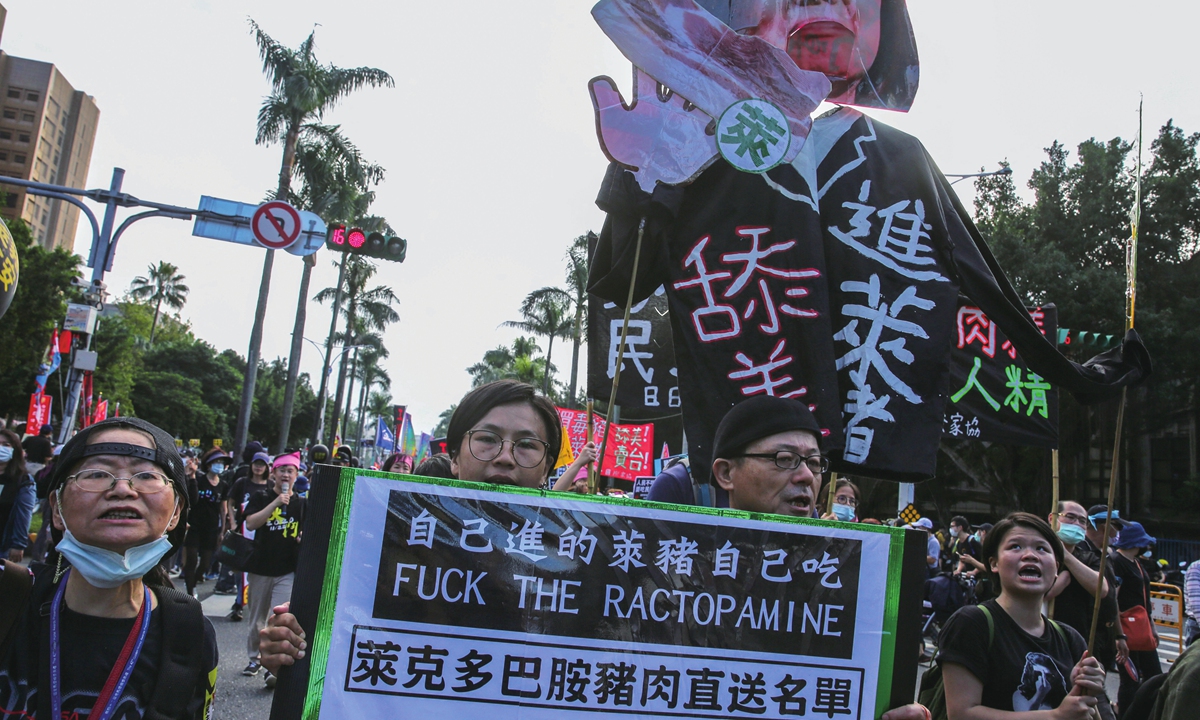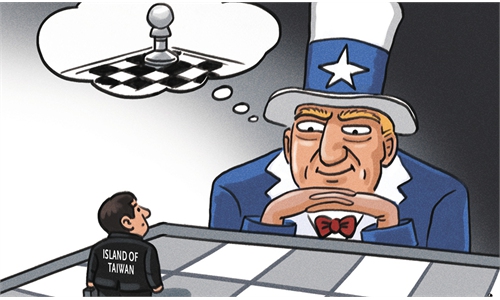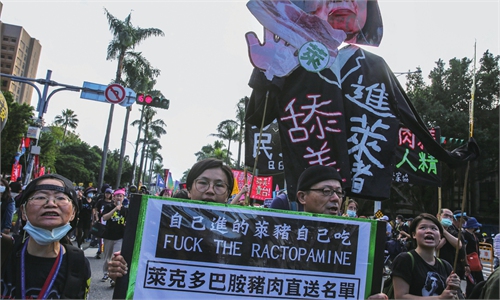Results of ‘four referendums’ in Taiwan isalnd reveal a highly hypocritical democracy

People on the Taiwan island protest against the lifting of restrictions on the import of US pork containing ractopamine feed additive in Taipei on November 22, 2020. Photo: AFP
People in Taiwan voted in "four referendums" on Saturday, including whether to ban the import of US pork containing ractopamine. The preliminary results, however, exceeded almost everyone's expectations as the majority of people voted no in all four, aligning with the positions of the Democratic Progressive Party (DPP) despite the expected success of the vote to ban the pork imports. These results show the DPP's ability to manipulate the island's society and the hypocrisy of the so-called "Taiwan democracy."As ractopamine is recognized as harmful to human beings, it was widely believed that people would vote to ban the import of such pork since it is fully in line with public interests in the island. The result of such failure makes people ask "why?"
The main reason is that the DPP successfully manipulated the referendums into a struggle between the DPP and the Kuomintang (KMT). The referendums were partly proposed and backed by the KMT. The motions are connected to economic and livelihood issues, such as food safety, environmental protection and electricity supply. However, since the referendums target wrong decisions made by the DPP authority, they were counterattacked by the DPP with all its efforts. More importantly, the DPP believes it has more opportunities to win in a partisan struggle as its base is far larger than that of the KMT's, so the former turned the referendums, which were supposed to be about people, a political game with the KMT.
There is no doubt that the DPP authority, including Taiwan regional leader Tsai Ing-wen and head of Taiwan's executive body Su Tseng-chang, benefits most from these results, which were completely flipped from an unfavorable situation a month ago, showing just how tenacious the DPP is.
In the Taiwan island, second term leaders appear to be cursed and have to face a series of crisis in their second terms. The results allow Tsai to temporarily avoid the curse, while enabling Su to stay as head of Taiwan's executive body. The domino effect that may be triggered by the removal of Chen Po-wei is also temporarily halted.
The positions of the KMT and its chairman Chu Li-luan were weakened by the referendums. The campaigns exposed the KMT's lack of money and supporters. Few public representatives or local county and city chiefs of the party responded to Chu's appeals. While the DPP spent lavishly on propaganda and gave 2,100 speeches, the KMT could not even afford the office expenses for its party headquarters.
Chu's failure in this campaign, which exposes the KMT's unity problem, will darken the future of himself and the party.
In addition to the KMT, the people of Taiwan are also losers. The turnout for these referendums was only 41 percent, 4.1 million casted vetoes, compared to 3.9 million who voted yes. In the Western-style democratic system, the 3.9 million people's wish is completely ignored. What is even more frightening is that the 4.1 million people who determined the future of Taiwan's 19.82 million eligible voters and even the fate of the 23 million people in Taiwan. Such a "democratic" process and result is far from what most people in Taiwan would like to see.
The people in the island will continue to import the US pork containing ractopamine, even without being informed because the island does not label it. Taiwan's beautiful algal reefs will suffer devastating damage. Large human and material resources will still be spent to hold various "referendums" on controversial topics. The shortage of energy will remain a problem. More importantly, the DPP authority, which holds administrative resources in the name of "Western-style democracy," will be more reckless in suppressing its opponents.
The author is an associate research fellow at the Institute of Taiwan Studies, Chinese Academy of Social Sciences. opinion@globaltimes.com.cn


